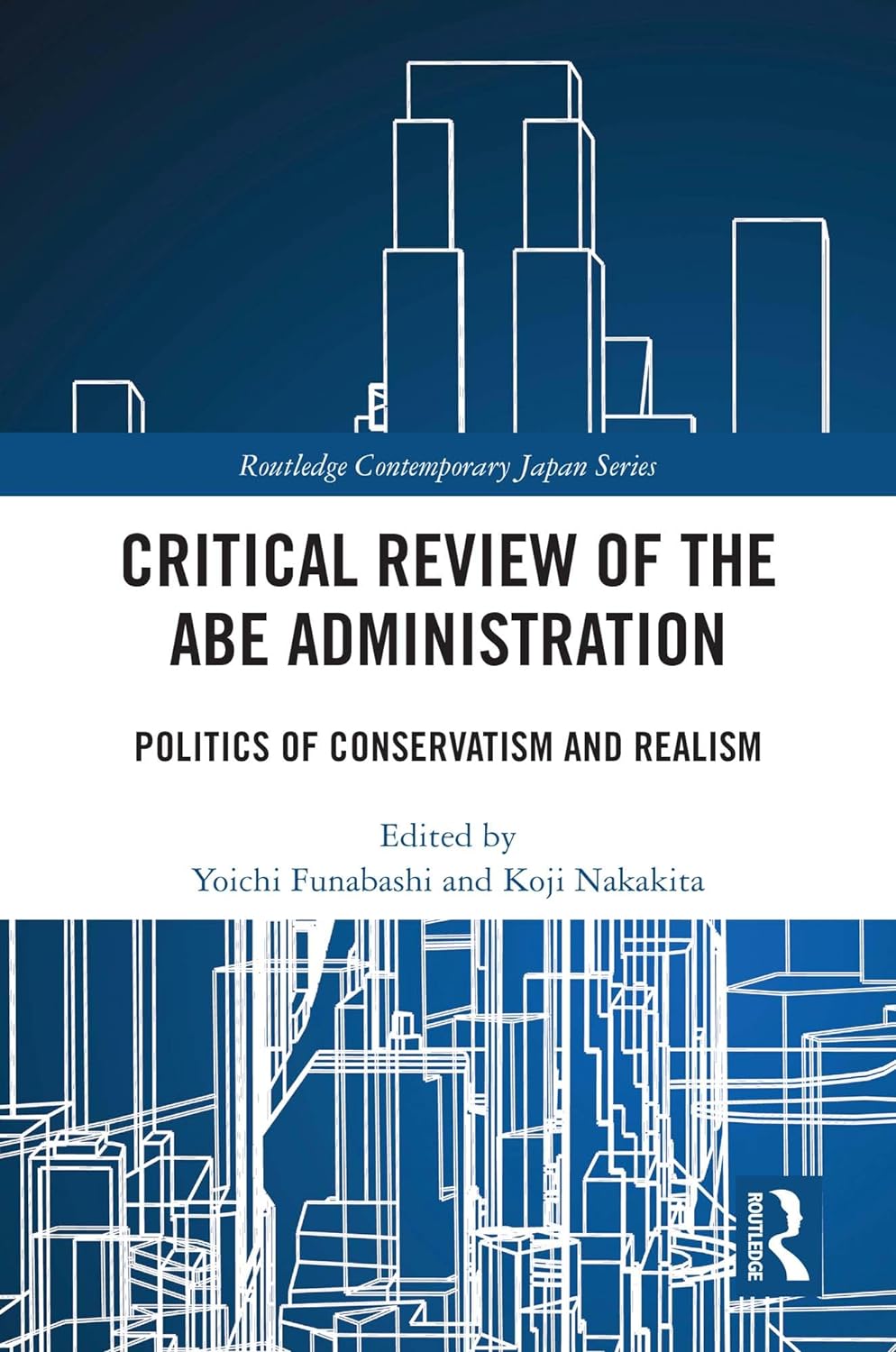

“Critical Review of the Abe Administration: Politics of Conservatism and Realism,” edited by Yoichi Funabashi and Koji Nakakita, was published by Routledge on December 12, 2023. This book has been released as part of Asia Pacific Initiative’s Critical Review of the Abe Administration project.
Originally published in Bungeishunju in Japanese, this book examines policies pursued by the administration and its governance based on over 50 investigative interviews with key figures in the administration, including former Prime Minister Shinzo Abe, former Prime Minister Yoshihide Suga, and current Prime Minister Fumio Kishida.
The contributors cover nine major policies, including economic policy, diplomacy and security, work style reform, trade liberalization, and historical issues, and explore why a specific policy was chosen at that time, who made that decision, and on what grounds. Reviewing such decision-making processes sheds light on the issue of governance. Consequently, this book also analyses the administration’s distinctive style of governance, such as strong leadership from the Prime Minister’s Office, ability to navigate party politics, and overwhelming victories in national elections.
An essential for scholars and students in the fields of public administration, public policy, Japanese studies, and Asian Studies.
Introduction
What made Abe’s long and stable administration possible?
Chapter 1
Abenomics: Putting the Finance Ministry and the Bank of Japan under the Prime Minister’s control
Chapter 2
Elections and public relations campaigns: Winning over the younger generation in a “silent revolution”
Chapter 3
The Prime Minister’s Office in charge: The conditions that enabled strong and stable leadership
Chapter 4
Foreign and security policy: The pursuit of strategy
Chapter 5
Politics on TPP and CPTPP: Turning Japan into one of the world’s major free trade powers
Chapter 6
History issues: A consistently realist approach
Chapter 7
Governance of the ruling parties: The pervasive control of the prime minister
Chapter 8
Skillful agenda-setting for women’s policy
Chapter 9
Constitutional revision—Why it failed
◎Interviewees (Only some are listed; without honorifics)
Shinzo Abe/Yoshihide Suga/Fumio Kishida/Akira Amari/Katsunobu Kato/Shigeru Ishiba/Sadakazu Tanigaki/Natsuo Yamaguchi/Shiori Kanno/Kiyomi Tsujimoto and others
 APIニュースレター 登録
APIニュースレター 登録